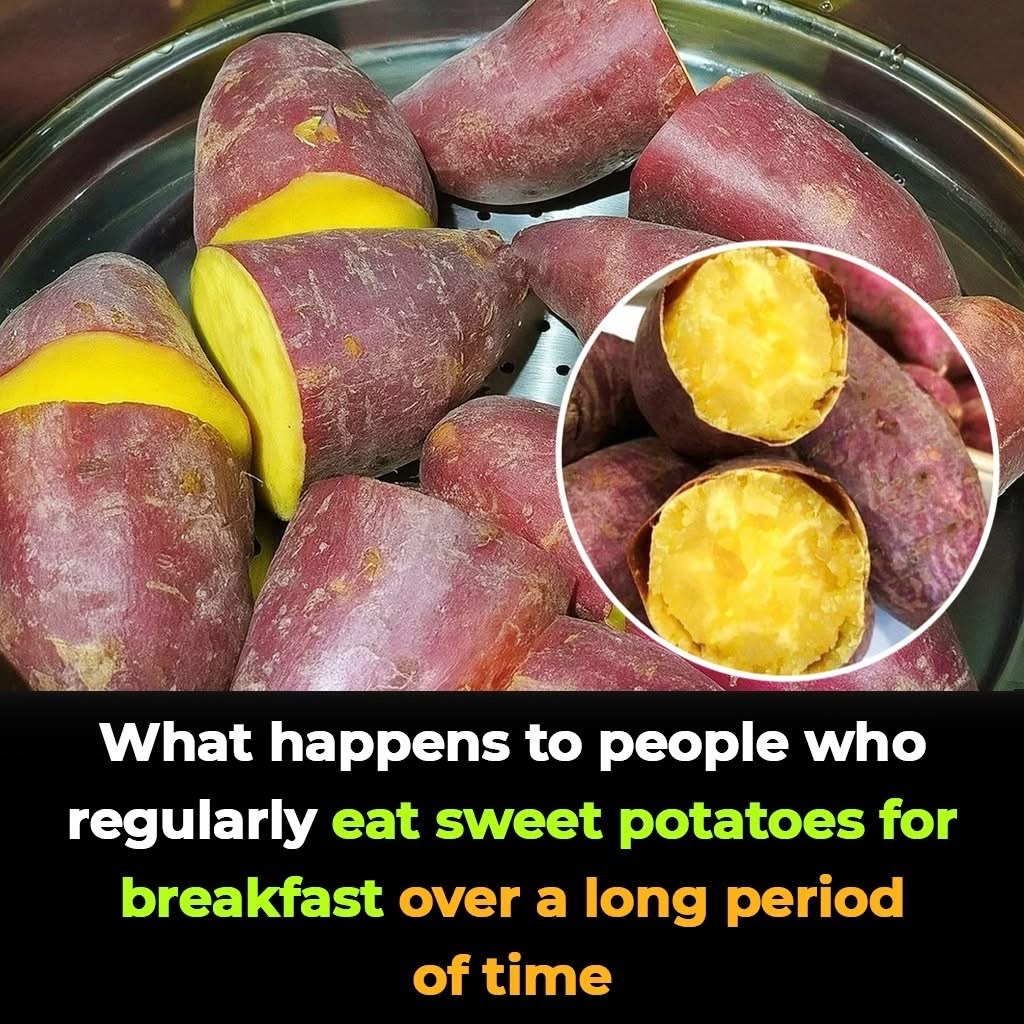
Sweet potatoes aren’t just delicious — they’re nutritional powerhouses.
With their vibrant orange flesh, natural sweetness, and creamy texture, they’ve earned their place as a superstar of healthy eating — loved by athletes, nutritionists, and families alike.
But beyond their flavor, sweet potatoes pack a serious health punch.
What Makes Sweet Potatoes So Healthy?
One medium sweet potato (baked, with skin) provides:
103 calories
4g of fiber (16% of your daily needs)
Over 400% of your daily vitamin A (as beta-carotene)
Vitamin C, potassium, vitamin B6, and manganese
Antioxidants like anthocyanins (especially in purple varieties)
Naturally fat-free, low on the glycemic index (when prepared right), and deeply nourishing.
7 Science-Backed Health Benefits
- Supports Eye Health (Thanks to Vitamin A)
Essential for night vision, eye moisture, and preventing dry eyes
Deficiency is a leading cause of blindness worldwide
- Boosts Immune Function
High levels of vitamin A and vitamin C help strengthen your immune system
Vitamin A supports the health of your skin and mucous membranes — your body’s first line of defense
✅ Especially helpful during cold and flu season.
- Supports Blood Sugar Balance (When Eaten Right)
Despite being sweet, sweet potatoes have a moderate glycemic index — especially when boiled or roasted (not fried)
Their high fiber content slows sugar absorption
Studies show they can improve insulin sensitivity in people with type 2 diabetes
- Promotes Healthy Digestion
4g of fiber per serving feeds your gut microbiome
Supports regular bowel movements and prevents constipation
Resistant starch (when cooled after cooking) acts as a prebiotic
Try leftover sweet potatoes in salads — they’re even better for your gut!
- Rich in Antioxidants That Fight Inflammation
Orange sweet potatoes: high in beta-carotene
Purple sweet potatoes: rich in anthocyanins (same antioxidants in blueberries)
These compounds help neutralize free radicals and reduce chronic inflammation
- Supports Heart Health
Potassium helps balance sodium and lower blood pressure
Fiber and antioxidants support healthy cholesterol levels
No cholesterol or saturated fat
A heart-healthy food that tastes like dessert.
- Great for Skin Health
Vitamin A promotes cell turnover and repair
Beta-carotene may offer mild sun protection (not a replacement for sunscreen!)
Vitamin C supports collagen production
Glow from within — naturally.
How to Eat Sweet Potatoes for Maximum Benefits
Avoid deep-frying (like sweet potato fries) — adds unhealthy fats and calories.
🔄 Delicious & Healthy Ways to Enjoy Them
Morning bowl: Mashed sweet potato with cinnamon, nut butter, and chia seeds
Tacos: Roasted cubes in corn tortillas with black beans and avocado
Salads: Cold sweet potato chunks with greens, nuts, and vinaigrette
Soups: Blended with coconut milk and ginger
Desserts: Baked sweet potato in brownies or muffins (replaces oil/sugar)
Are Sweet Potatoes Better Than White Potatoes?
Vitamin A
Very high
None
Fiber
Slightly higher
Moderate
Glycemic Index
Lower (when boiled)
Higher
Nutrient diversity
High
Moderate
Both can be healthy — but sweet potatoes edge out in vitamin content and antioxidant power.
Final Thoughts
You don’t need exotic superfoods to eat well.
Sometimes, the most powerful nutrition comes from simple, colorful, earth-grown foods — like the humble sweet potato.
Packed with vitamins, fiber, and disease-fighting antioxidants, it’s not just a side dish — it’s a whole-body health booster.
So next time you’re at the grocery store, grab a few sweet potatoes.
Roast them. Mash them. Slice them.
And enjoy the kind of deep, natural nourishment that only real food can provide.